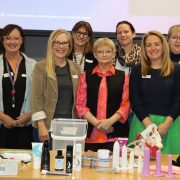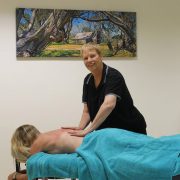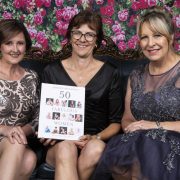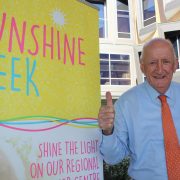Breaking the Silence: Workshop tackles cancer’s impact on intimacy and sexual health
Pillar 3 Education in action
For many cancer patients, the road to recovery is marked not only by physical treatment but also by silent struggles—those that are harder to see and even harder to talk about. One of the most deeply felt and rarely discussed is the impact of cancer on intimacy and sexual health.
In a step toward changing that, 26 healthcare professionals from across the Albury Wodonga region came together on June 5 and 6 for a transformative workshop: “Overcoming the Challenge of Addressing the Impact of Cancer on Intimacy and Sexual Function.”
Diane Davey from the Cancer Centre’s Education Committee praised the impact of the Trust Fund-supported workshops, noting they were only possible thanks to the incredible generosity of the community.
“We’re truly grateful for this ongoing support and look forward to continuing to provide meaningful learning opportunities for our team,” she said.
Led by Professor Kate White from the Sydney Nursing School, University of Sydney and The Daffodil Centre, the training addressed this often-overlooked topic—how cancer and its treatments can profoundly affect a person’s sense of self, body image, and intimate relationships.
Kate opened the session with a powerful quote from Dr Mikkael Sekeres:
“Cancer is an unwelcome house guest that upends lives and despotically redefines a person’s sense of self.”
This set the tone for two days of honest and open learning.
“Cancer doesn’t just change your health,” Kate explained. “It changes how you see yourself, how others see you—and it can leave people feeling disconnected from who they used to be, especially in their most intimate relationships.”
Local voices brought the human experience to the forefront. One patient, who wished to remain anonymous, shared:
“Cancer changed everything—from my sense of self to my body image. Some changes weren’t visible, like the impact on intimacy, but others, like hair loss, deeply affected my confidence and emotional connection with my partner.”
Another patient echoed this sentiment and expressed gratitude for the workshop:
“Not one health professional spoke to me about intimacy during treatment. It wasn’t until four years later that I finally felt brave enough to ask. I’m so thankful the Education Committee brought Kate to the Centre. She’s normalising these conversations for people like me.”
Professor White noted that healthcare professionals often want to support the whole person but may lack the skills or confidence to raise such sensitive issues.
“This should be a safe conversation to have with patients,” she said. “The challenge is integrating it into everyday practice. We need to normalise the conversation.”
Throughout the workshop, staff learned how to approach the topic of sexual health with patients—something many admitted they had previously avoided not out of disinterest, but from fear of saying the wrong thing.
Feedback from attendees highlighted the workshop’s deep impact:
“This was one of the BEST study days I’ve been to.”
“I now know how to start these conversations and what resources are available locally.”
“Today’s learning will directly impact my patient care.”
“I now feel more confident and at ease talking about sexual health with my patients.”
Cancer’s impact on intimacy and sexual health is often left unspoken, but for those affected, the emotional and psychological toll goes far beyond physical treatment—touching self-esteem, identity, and relationships.
We hope this article may help open the door to this important conversation and empower you to speak with your healthcare team about any concerns you may have.
As Professor Kate White reminded attendees:
“Sexual health is part of your overall health. While cancer may change how you experience sexual pleasure, you still have a right to it. Sex should be pleasurable, and we should be able to talk about it.”









